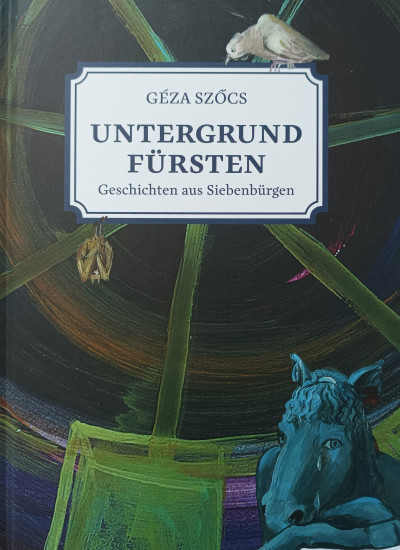When octopuses sigh in Cluj

Transylvania always had something fairylike about it: changeable, insecure, unexpected, hallucinating, unstable, floating, affirming and not affirming, once this way and then again this way, shadows, magic, wisp in the closet, illusion, ten centimetres above the ground, refraction of light, coat sewn from camphor hung on a coat hook, upward-flowing streams, golden strands of hair at night, doublets, incomprehensible, inexplicable, unravelable, perhaps-yet-being, almost-like, unaccountable, uncontrollable. Land of the secret princes, ruled by an unknown celestial body. Géza Szőcs ́ 21 stories illuminate Transylvania’s corpse as lanterns in the twilight of oblivion. If Transylvania interests anyone, on its bookshelf or, as the author sarcastically notes, at least in its cellar or attic, this book could have a place.
Géza Szőcs, born in 1953 In the mid-seventies, the then twenty-year-old young man from Transylvania, generational companion of Herta Müller, was considered a great promise among Hungarian poets. Although he has been awarded prestigious Hungarian,
Romanian, Italian and Austrian prizes, there is no talk today of him as a reviver of contemporary poetry. Nor did he have much time for it. As a journalist and civil rights activist, he played a not inconsiderable role in both the preparation and implementation of the systemic change in Eastern Europe, and was equally at home in the world of underground and continental political responsibility.
In Ceaușescus Romania he was, so to speak, the only spokesman who stood up for the rights of the German minority in Transylvania. But he also distinguished himself as an advisor to the famous Pan-European Picnic, which enabled almost one thousand East German refugees to cross the Iron Curtain for the first time and whose event was an important milestone on the road to the fall of the Berlin Wall. Géza Szőcs has been a politically persecuted, exiled, Budapest office manager of the Free Europe channel for the past thirty years, and later, already after the collapse of the Soviet empire, a senator in Romania, leader of democratic parties, state secretary in Hungary, government official, organiser of cultural life, newspaper editor and publisher. How he still had time to write poetry, prose, dramas and essays and to be present in the literary world as a translator remains his secret.